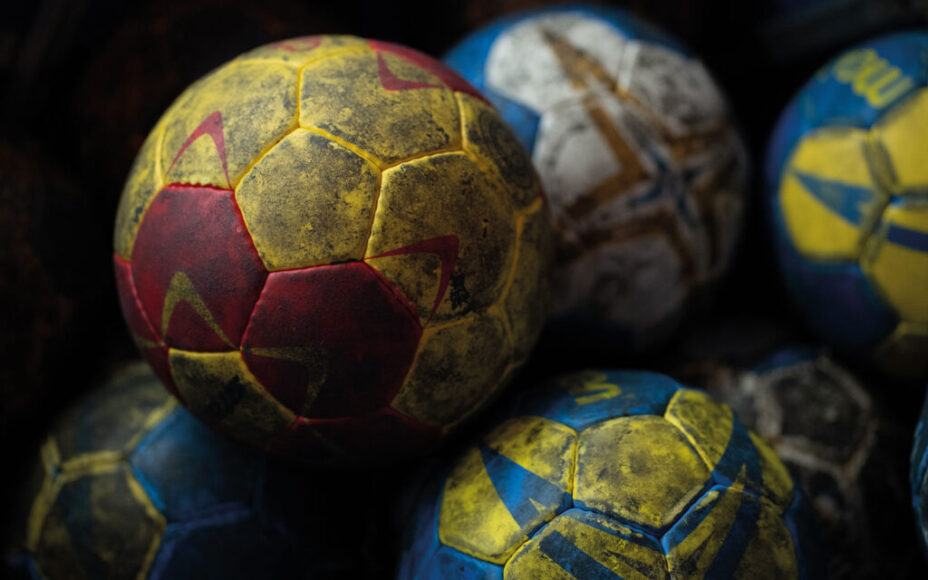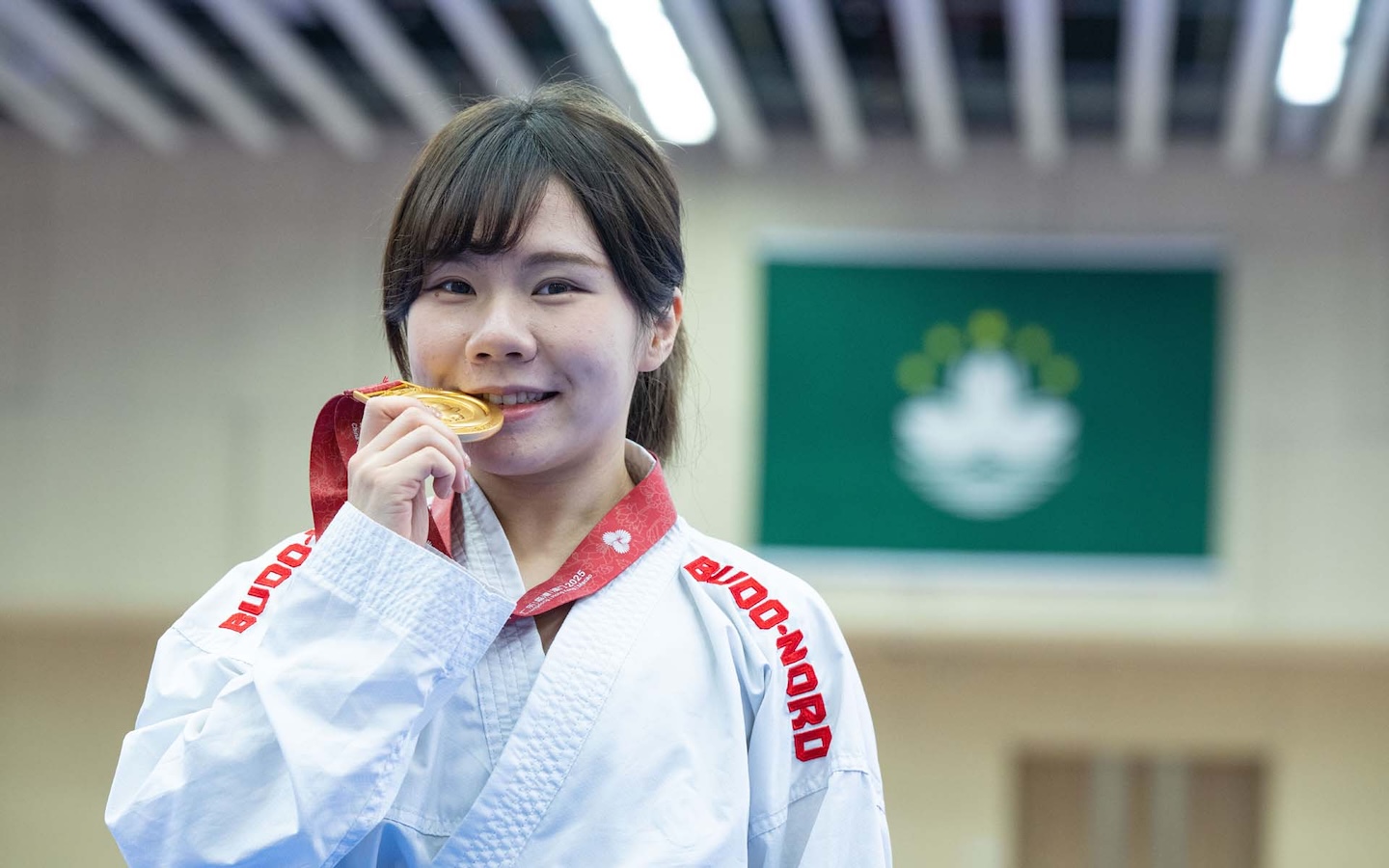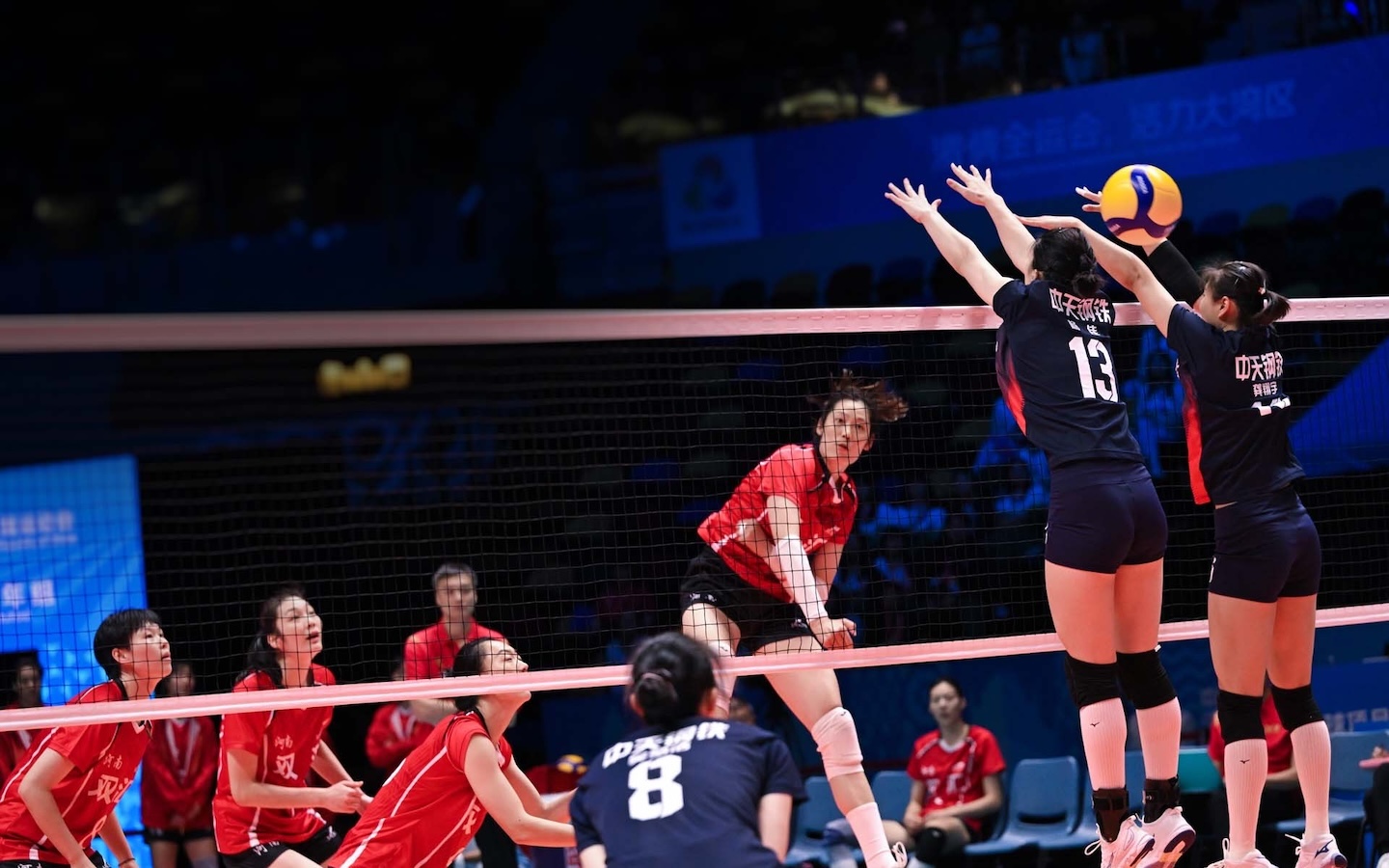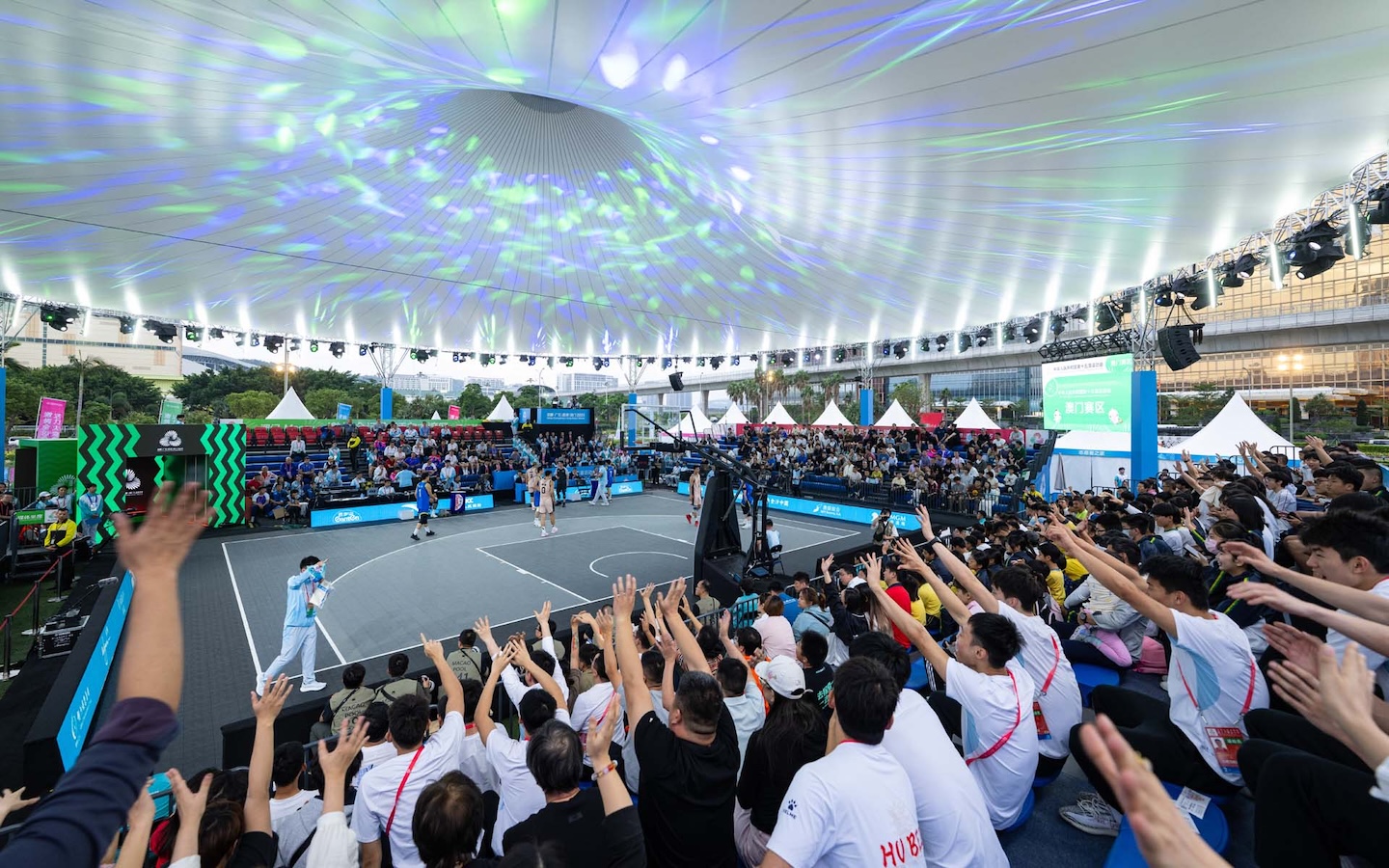As Macao gears up to co-host China’s 15th National Games this November, one of the lesser-known sports on the schedule is hoping for a breakthrough moment. Handball, a high-energy game blending elements of football and basketball, has amassed a small but committed community of players and advocates here in the Special Administrative Region (SAR).
One of its most passionate practitioners is high school senior Leong Meng Un. Currently a left-wing player for the Macau Handball Team, the 19-year-old rising star has juggled training with studies for the better part of his teenage years and will represent the region on the national stage come November.
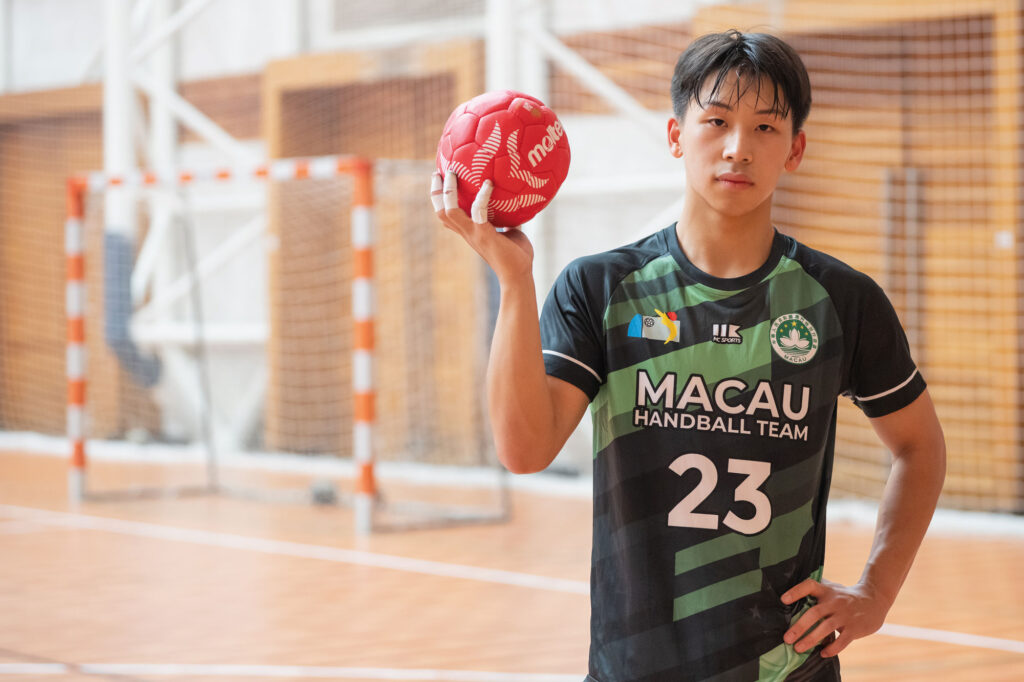
“Handball gave me something to strive for,” Leong tells Macao magazine. “It’s made me physically and mentally stronger, more self-disciplined. It’s changed my life.”
His coach, Wong U Hou, is another handball evangelist. Wong, 40, has led the team for the past three years and is now on a mission to attract younger players, especially those in primary school. “We need to build a stronger foundation to ensure the sport’s future,” he says. The National Games, Wong notes, offer a valuable opportunity to raise handball’s profile in the SAR – especially if the local team performs well.
Handball – what is it, exactly?
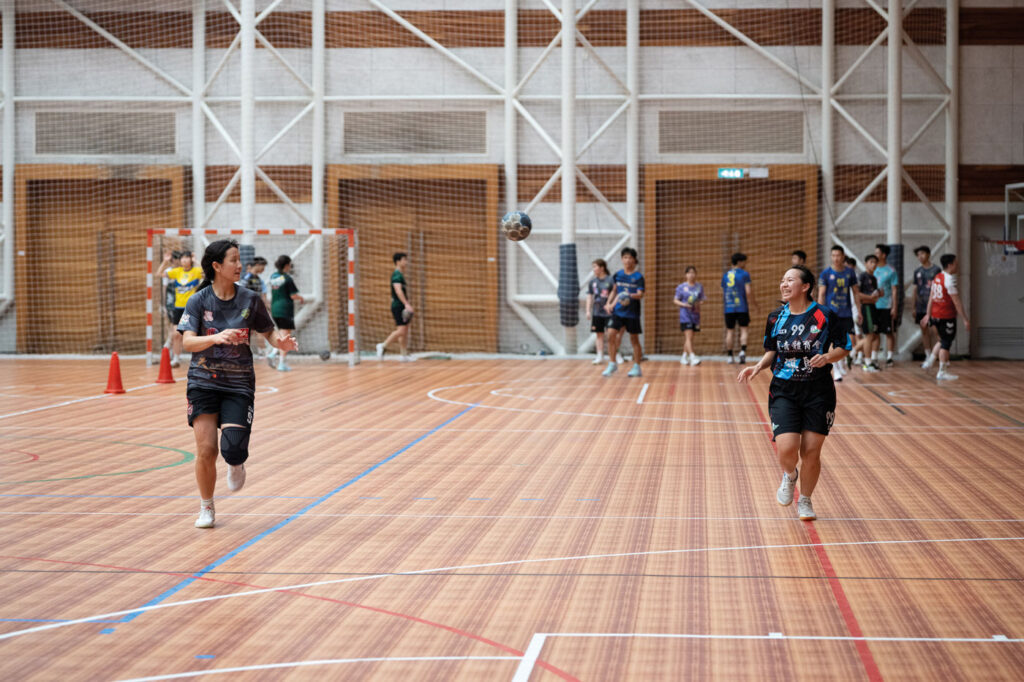
Versions of handball have been played in northern Europe since the late 19th century, with the modern indoor format developed in Sweden in 1910. However, the sport has remained decidedly niche outside of places where it’s hugely popular. According to the International Handball Federation (IHF), a rather eclectic collection of countries rank handball as their second-most popular sport after football. Think Norway, Germany, Iceland, Romania, Montenegro, Qatar and much of North Africa. Denmark, the current world number one, claimed its fourth consecutive title at the 2025 IHF Men’s Handball World Championship in February and also took home gold at the 2024 Olympic Games.
For the uninitiated, handball is played on a large indoor court with seven players per side including the goalkeeper. The objective is to throw a ball into the opposing goal, which resembles what you’d see on a football field. Players pass, dribble and shoot using their hands, with lightning transitions between offense and defense. Their action-packed matches last 60 minutes, split into two halves, and generally result in at least 20 goals per team.
Handball made its Olympic debut in 1936 in its original outdoor format, which never officially appeared again. The now-dominant indoor version was added to the Games in 1972, when the team from Yugoslavia won gold (the sport remains very popular in former Yugoslavian countries).
So far, it’s made modest inroads into East Asia. While the Asian Handball Federation (AHF) was founded back in the mid-1970s, the highest-profile handball win by an East Asian team remains South Korea’s gold medal at the 1988 Seoul Olympics.
Growing handball in Macao
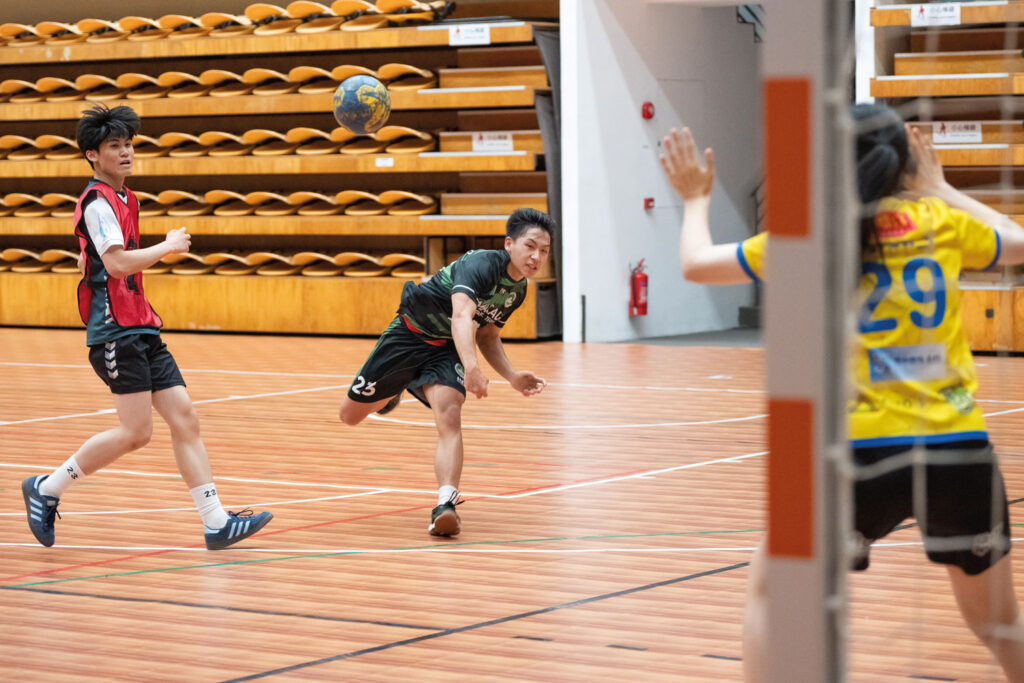
In Macao, the sport is slowly gaining traction under the guidance of the Macau-China Handball Association, particularly at the university level. The University of Macau (UM) runs a ‘Beginning Handball’ programme, and the annual Macau University Handball Championship also helps with exposure. There are a few dedicated handball courts in the city, but they’re not readily available to the public.
Coach Wong would love to see more youth participation. “The shortage of young players creates a talent gap, which could lead to a decline in the overall level of handball in Macao as current athletes retire,” he explains. According to Wong, one of the biggest challenges is that students typically gravitate toward familiar sports like basketball, football and badminton. Handball, by contrast, tends to be introduced only in secondary school, if at all.
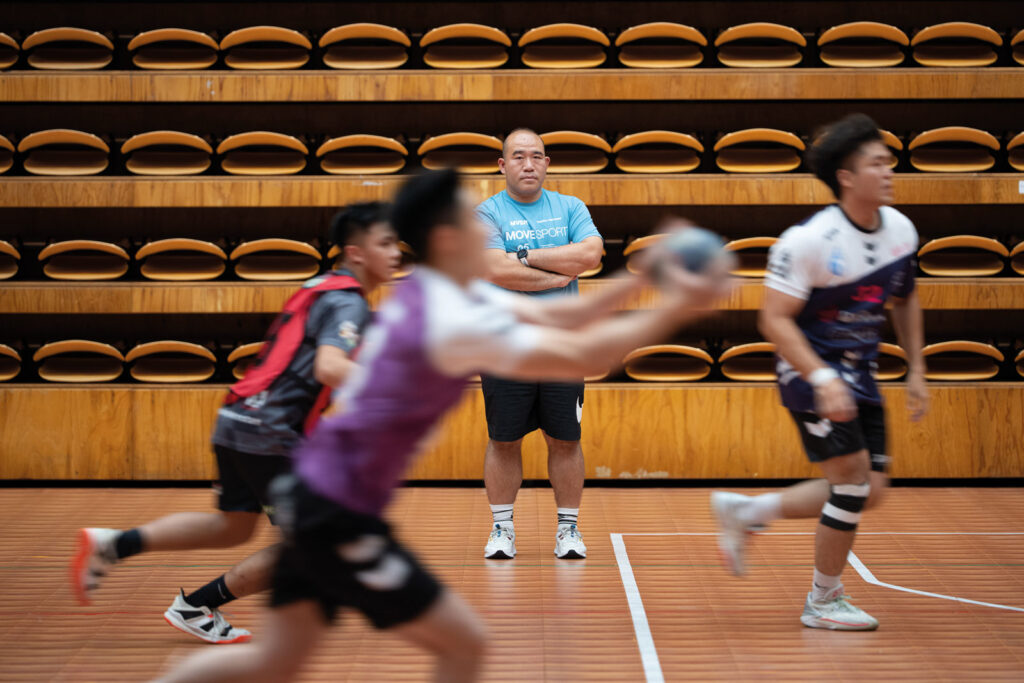
Wong believes the sport offers plenty of appeal, however. It requires no specialised equipment, the rules are easy to learn and, above all, it’s fun. Watch a game and you’ll quickly understand that there’s never a dull moment in handball, for players and spectators alike. The sport is physical (with a lot of body contact and jostling), tactical and compelling – even a strong lead can disappear in seconds.
To help build the sport from the ground up, Wong spearheads initiatives that introduce handball to schoolchildren and connect local players and coaches with international training and techniques. He himself discovered handball at school, back in the late 1990s, when a teacher suggested he switch over from basketball.
Balancing the classroom and court
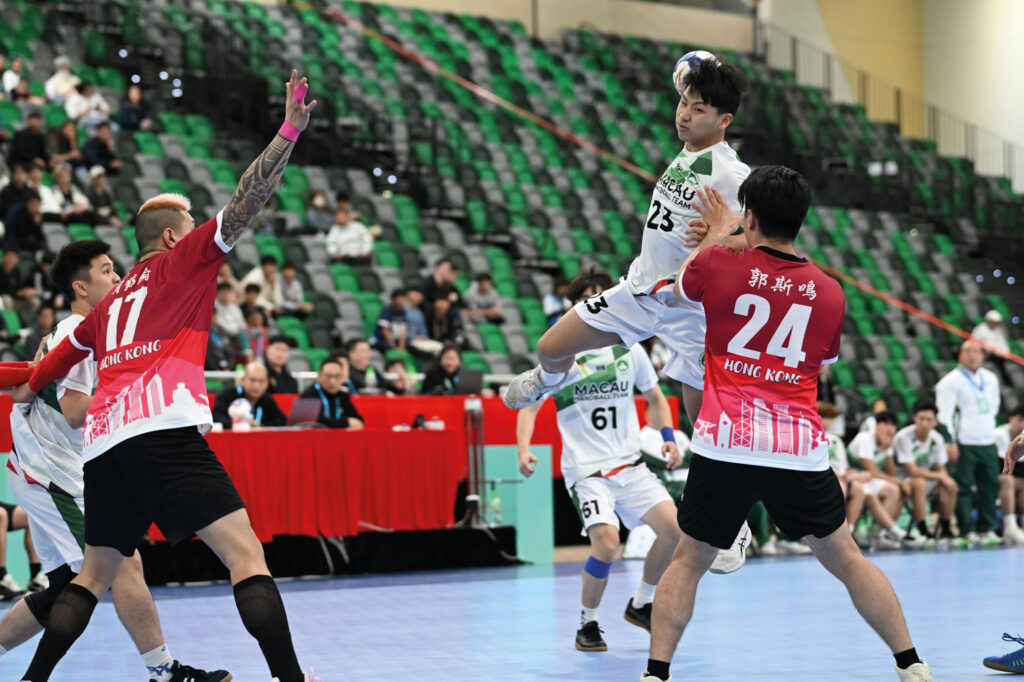
Leong was introduced to the sport at a primary school sports meet in 2018. There, a coach noticed his natural athleticism and suggested handball might be a good fit. Even though Leong had never heard of the game before, he joined the school team with an open mind and quickly developed a passion for it.
At the end of 2021, just 16 years old, Leong was selected for the Macau Handball Team. The transition was intimidating. “The players were the best in Macao, and I was afraid of disrupting their progress,” Leong recalls. But his teammates welcomed him, and Leong’s commitment soon earned their respect.
Leong’s debut match outside of Macao was last year, at the 2024 Guangdong-Hong Kong-Macao Bay Area Handball Championship. The team achieved third place.
He trains in the evenings, attending the Fong Chong School of Taipa during the day. “Academics are my priority,” he says. “But I’ve always found ways to make time for training without falling behind in my studies.” Now in his final year of school, Leong balances rigorous training for the National Games with preparations for exams. After he graduates, the athlete plans to attend university while continuing to compete in handball.
While Leong acknowledges that Macao’s handball team is still finding its footing, he says he feels immense pride in representing his hometown. He’s determined to seize every opportunity to grow and compete. “Playing against teams from other regions has shown me how much room we have to grow,” Leong says. “But this just motivates me to train harder, become stronger and prepare for the National Games.”
‘Build a lasting legacy’
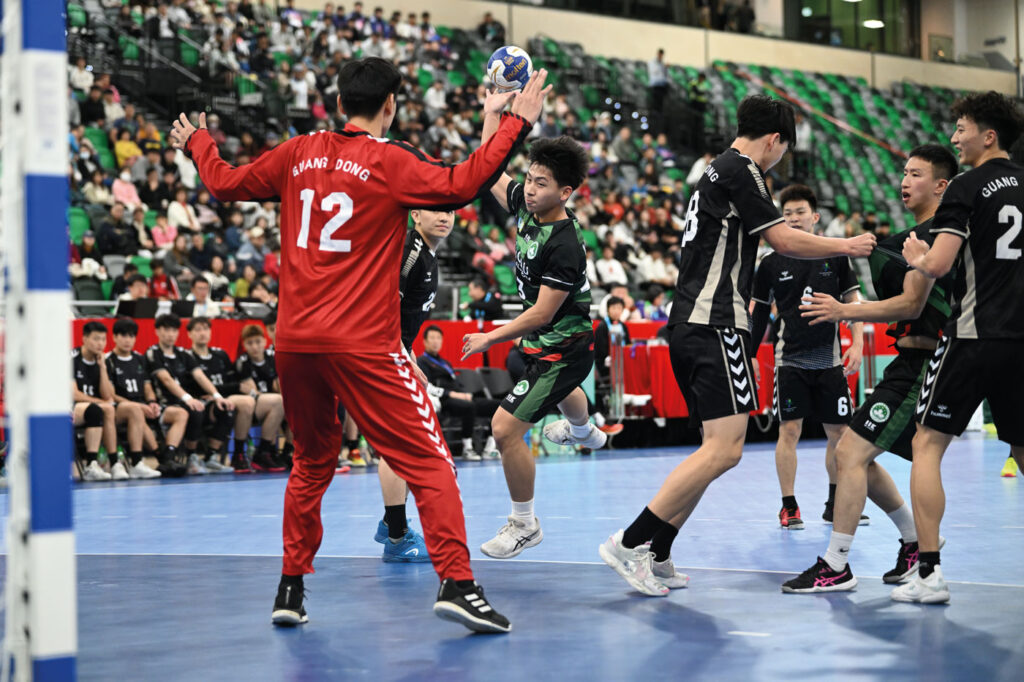
The 15th National Games will be jointly hosted by Macao, Hong Kong and Guangdong Province from 9 to 21 November. It will be Macao’s first time co-hosting the event, and local sports officials hope the exposure will not only promote lesser-known sports like handball but also showcase the SAR’s top-tier sporting facilities.
Leong says he’s excited to display his handball skills to a national audience, while Wong sees the Games as a crucial benchmark for the team’s development and a chance to identify areas for growth. In the lead-up, training is intensifying. Leong and his teammates are working on their physical fitness, cohesion and tactical discipline. “We’re focused on building a solid foundation,” Wong says. “It’s crucial for both individual development and the team’s success.” He also believes the high-stakes environment of the Games will help players build psychological resilience for future international competitions.
Strong results are certainly the goal, but Wong also hopes the Games will inspire the next generation of Macao handball players. “When young players see local teams competing at a major event like this, it motivates them to take part in the sport,” he says. “This is how we build a lasting legacy.”
